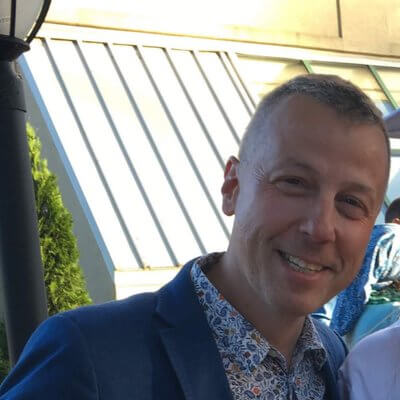
Alexander Neumeister has always had a passion for studying medicine. Alexander earned his medical degree while in Vienna, Austria. He entered into his residency program where he began to focus on psychiatry, child and adolescent psychiatry, psychology, and neurology. In 1966, Alexander Neumeister decided to move back to the United States to embark on his research. Alexander Neumeister pursued the field of neuroscience not only due to the recent breakthroughs but due to personal reasons. Alexander’s closest friend from high school had suffered from mental illnesses which, in the end, caused him to commit suicide.
To date, Alexander has written in leading neuroscience journals. Not only has his research advanced the field significantly, but Alexander is a master of collaboration and bringing together bright minds to find solutions. Through these collaboration sessions, they have, as a team, brought several molecules into proof of concept and proof of mechanism studies involving different neuropsychiatric and medical patient populations. Alexander Neumeister isn’t afraid to bring in new team members from multi-disciplinary fields, as he believes this can only add value to the research.
Throughout his entire educational and professional career, Alexander has consistently volunteered for a wide variety of organizations in his community. He organized summer camps for children with cancer, started a soup kitchen and helps them twice a week, regularly visits retirement communities to visit the elderly and assists with recreation development, and he is working closely with colleagues in the DR Congo to help understand the impact of trauma in the area. There is no area of service he dedicates all of his time; however, Mr. Neumeister gives much of his time to helping as many people in all types of situations as he can.
Along with Alexander Neumeister’s many professional and charitable acts, he enjoys following his passion of music, operas, and plants. Whenever possible, Mr. Neumeister enjoys gardening and the relaxation it brings. Alexander is blessed with a green thumb and will do whatever it takes to keep his plants alive and thriving. He has become known among his friends as the man who can fix any plant, and they quickly learned to bring their dying plants to Alexander who could almost always save them. He began playing the piano at age 4 and was trained classically. From age six to 18, Alexander trained at the University of Vienna and found himself on a trajectory to become a highly successful pianist. For personal reasons, Mr. Neumeister decided to forego a career as a professional musician and chose to become a medical professional. He now plays for fun in his home, for friends, and whenever he volunteers at retirement communities.
Our Interview With Alexander Neumeister
What’s the most important thing we should know about you?
Alexander Neumeister: I am a very curious person who loves to explore the world. That curiosity has certainly contributed that I enjoy research and especially neuroscience.
Name the most impactful lesson you learned from failure.
Alexander Neumeister: It was to learn who your friends are and who are the people I should have excluded from my life much earlier. In addition, it was teaching me a lesson about the importance of family. Also, never give up hope even if the situation appears hopeless, but there will be a way forward.
What accomplishment are you most proud of?
Alexander Neumeister: To not have given up in a situation of the worst adversity but instead have been trying to work myself out of a basically impossible situation.
What did you waste the most time on when you were first starting your career?
Alexander Neumeister: Administrative responsibilities.
Name a tool you use for work that you can’t live without.
Alexander Neumeister: I cannot live without a phone. My iphone which houses all my contacts, documents and my calendar.
What is your favorite hobby and why?
Alexander Neumeister: It is music, either active playing or listening. It opens new worlds which even in situations of adversity provide comfort and the assurance that everything I live through has already been described in music. Plus, I love to attend the opera and concerts because it creates a unique atmosphere which enhances creativity, peace, and a feeling of sharing the experience between artists and the audience.
What excites you the most about your industry right now?
Alexander Neumeister: We may be approaching an era where novel treatments may be generated and become available for patients with neuropsychiatric illnesses
What concerns you most about your industry right now?
Alexander Neumeister: While there are great and significant efforts made to create novel treatments for patients with psychiatric illnesses, there often appears to be a disconnect between those novel interventions and the often complex etiology of these illnesses. This could result in treatments that are not reaching their full potential.
What’s the greatest risk you’ve ever taken?
Alexander Neumeister: The greatest risk was to try to translate an observation that I made in a number of patients into a treatment for patients with a history of trauma.
Name one small habit that positively impacts your productivity.
Alexander Neumeister: I think it is enthusiasm.
What tips do you have for getting a seat at the table?
Alexander Neumeister: Being authentic, open-minded, and accepting. That does not mean to agree to everything and everybody, but do not be judgemental or narrow-minded.
What book has made the biggest impact on your life?
Alexander Neumeister: I think it was an opera, called Wozzeck by Alban Berg. It was the nature of the characters who portray a society that is cold and abusive, and at the same time very emotional and desperate to experience happiness and peace. The naiveté of the children is touching and provides an avenue to humanity.
Do you value intelligence or common sense more? Why?
Alexander Neumeister: I value common sense because it involves intelligence including social intelligence, ability to anticipate and effort.
What would you consider to be the perfect day?
Alexander Neumeister: To wake up and feel safe.
